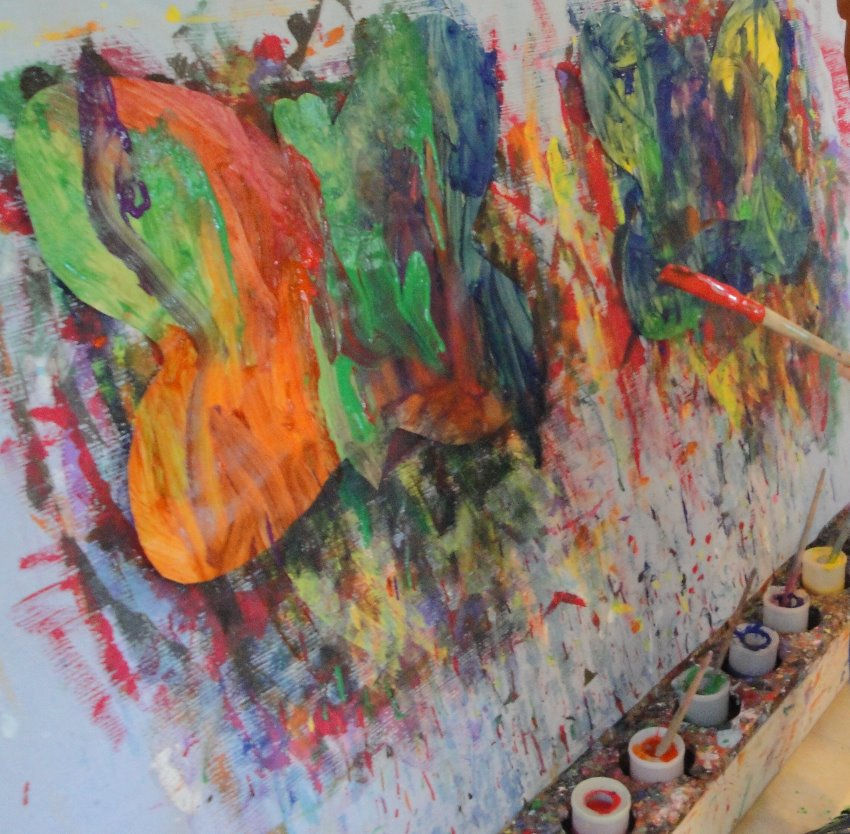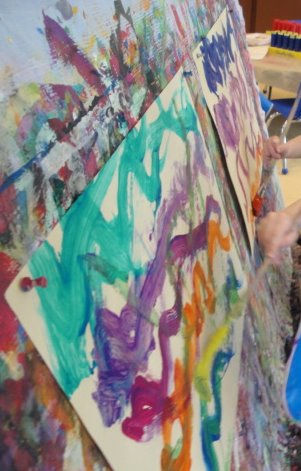



One Love Preschool
Collaborate Construct Discover
About
Thank you for your interest in our humble little school. It may be small in size, but most definitely is large in heart. Read below for more about our founder and the Reggio Emilia philosophy:

Founder/Head Teacher: Annie Graham Cosgrove
I have a masters degree in early childhood education and have taught for the past 25+ years, primarily with children ages 3-6. I am enchanted with young children's innate curiosity, special tenacity, unique tenderness and raucous joie de vivre. I feel I am a great match for this age group as I embrace teachable moments, wonder and ponder, and am curious about our world just as much as the children. I enjoy crafting warm and engaging environments in which children can collaborate, construct knowledge, and find joy discovering and cultivating interests.
I chose to research the Reggio approach for a graduate school independent study class and was highly influenced by my findings. Since that time, I have incorporated Reggio aspects into every classroom I have taught in. Over the years, as the educational landscape has changed, I was disheartened to see more workbooks and prescribed programs trickle down to the younger children, eating into time better spent on creative learning pursuits. After some soul searching, I decided I needed to be truly autonomous in order to provide a program I felt best set a framework for young children's learning. I opened One Love in 2017, and here we are!
I strive to partner with local organizations and am grateful for our ongoing relationship with The Altamont Free Library. We proudly sponsor village events and support numerous Altamont Community Tradition-ACT events, such as Victorian Holidays, Winter Fest (where we won People's Choice at the Hall of Trees!), Fall Fest and Strawberry Social. We are a collection site for JB's Holiday Cards, The Red Bookshelf, local food banks and sponsor children through Adopt a Family USVI and Jazzy Sun Birthdays. We joyfully assist ARC with their monthly community dinners (a popular family social gathering)! Our learning happens both within our walls and out in our wider community and we love that!
I fully understand what skills and concepts are currently expected for "school readiness" and am confident that children leaving One Love for kindergarten will be amply prepared for their next chapter.
"The first and most revolutionary principle in the Reggio Approach is both that individuals are not, as it were, isolated one from the other, and that human sensibility is based on a sharing of minds and hearts in dialogue and interaction."
Jerome S. Bruner


Reggio Emilia
The Reggio Emilia Approach is named after the city in Italy where it was founded. Reggio philosophy believes that all children are capable learners, all learning starts with a question, that children have 100 languages in which to express themselves, and that the environment is "the third teacher". Reggio-inspired programs are based on cooperative, hands-on, sensory and discovery learning.
Reggio Emilia classrooms are aesthetically pleasing, have loose parts that invite children to investigate, provoke learning by introducing authentic materials and are somewhat child-led. Materials are carefully curated. Children, teachers, parents, and the wider community interact in meaningful ways.
Reggio-inspired environments are convivial and active, but also soothing and contemplative. A healthy respect for the natural world is reflected in materials, use of natural cleansers, use of real cutlery/dishware/cloth napkins, consumption of wholesome foods, and other features that contribute to the feeling of security of "home" as well as earth stewardship.
The "atelier" (art studio) is the heart of a Reggio-inspired program. Children are given abundant opportunities with multiple media to construct knowledge through manipulation of materials.
Outdoor spaces are somewhat different than traditional playgrounds. Spaces for loose parts play, drama, art exploration and gardening are important elements.
Opportunities such as taking yoga class, practicing mindfulness exercises, and being junior park stewards not only promote gross motor development, but also instill important habits of care for self, others, and the earth.
"Children need the freedom to appreciate the infinite resources of their hands, their eyes, and their ears, the resources of forms, materials, sounds, and colors."--Loris Malaguzzi